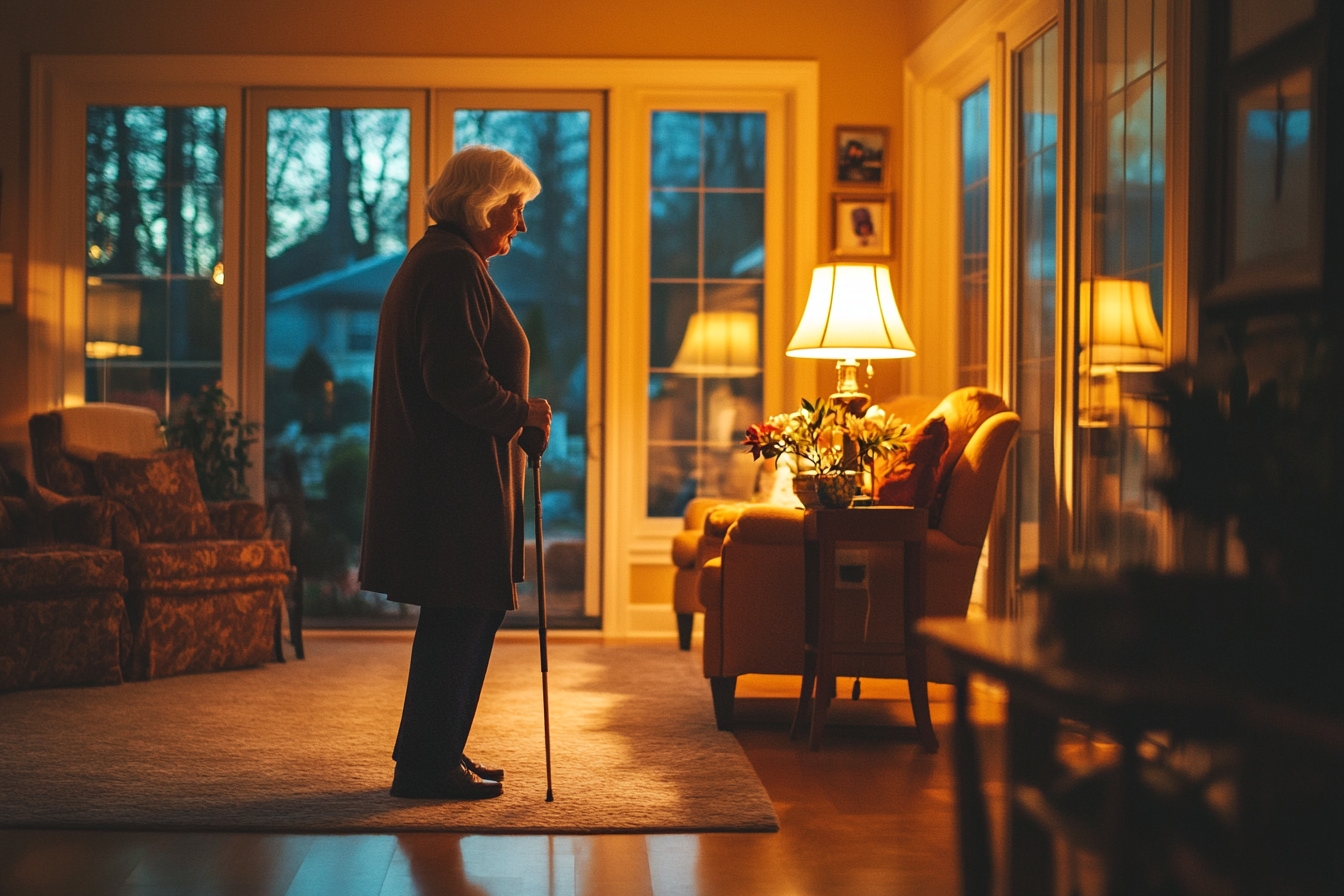Aging in place is a popular choice among seniors due to the comfort and familiarity it provides. However, it can also raise a number of concerns, including safety at night. Thankfully, with the right supports in place as well as assistance from elder care, seniors can take steps toward feeling secure in their own homes so they can continue to be independent.
Improve Home Security
Enhancing home security is one of the most effective ways to improve seniors’ nighttime safety. Modern security technologies are accessible and can be tailored to any home. Some of the strategies that seniors and their family members might consider include the following:
- Smart Locks: Replace traditional door locks with smart locks that enable keyless entry. This reduces the likelihood of seniors misplacing keys or fumbling with locks late at night.
- Alarm Systems: Consider installing a security alarm system that will notify authorities if a door or window is tampered with. Some systems include panic buttons, which seniors can easily access in an emergency.
- Video Doorbells: With these devices, seniors can see who is at their door without having to open it. The ability to monitor visitors can provide peace of mind, especially if unexpected visitors arrive at unusual hours. Elder care can work with seniors during the daytime hours to get them used to how these devices work.
- Exterior Lighting: Install motion-sensor lights around the home’s perimeter. Well-lit areas deter potential intruders and help seniors avoid tripping while walking outside after dark.
Establish a Nighttime Routine
While it’s important to not add to their fears, having a consistent nighttime routine can help seniors feel more secure and settled before bedtime. Some of the things they might incorporate into their routine include:
- Securing Locks and Doors: Check and lock all doors and windows before going to bed. Some seniors may find it useful to use a checklist to ensure that everything is complete. Elder care can help them create this list as well as update it regularly.
- Create a Bedside Emergency Plan: Seniors should keep essential items on their bedside table, such as glasses, a flashlight, a phone, and any medications within arm’s reach. Having these items on hand can help to reduce stress during the night.
- Use a Personal Alert System: A wearable device, such as a medical alert bracelet or necklace, lets seniors call for assistance if they fall or experience another emergency during the night.
Improve Indoor Lighting
Navigating through a dimly lit house can be difficult for seniors, raising the risk of falling. Elder care and family members can go through the home, noting where lights need to be added, such as in hallways, on stairways, and in bathrooms and bedrooms. Motion-sensor lights inside the home are also an excellent option, since they automatically turn on when seniors move about.
Stay Connected
Staying in touch with family or neighbors can give seniors who live alone a sense of security. Family members can schedule regular check-ins or use video calls to connect each night or arrange for neighbors to check in on seniors. Additionally, families may consider installing monitoring systems that allow them to check on loved ones remotely while respecting their privacy.
Helping seniors feel safer at night while aging in place requires a combination of practical measures and emotional support. Loved ones and elder care can work together to ensure that seniors enjoy their independence while remaining safe by incorporating some of the tips above.
Sources:
https://www.ncoa.org/adviser/sleep/home-safety-older-adults/
https://www.frontpointsecurity.com/blog/tips-for-senior-safety-when-aging-in-place
https://www.aarp.org/home-family/your-home/info-2021/aging-in-place-checklist.html
If you or an aging loved one is considering elder care in Walnut Creek, CA, please contact the caring staff at Golden Heart Senior Care of Walnut Creek. (925) 203-3039.


 Each year, the CDC releases a report on medications older adults take. It was found that close to 40 percent of all adults 65 or older fills prescriptions for at least five medications each month. Close to 50 percent filled one to four prescription medications. At the same time, emergency rooms across the U.S. reported an increase in the number of visits regarding adverse reactions or overdoses of prescription medications.
Each year, the CDC releases a report on medications older adults take. It was found that close to 40 percent of all adults 65 or older fills prescriptions for at least five medications each month. Close to 50 percent filled one to four prescription medications. At the same time, emergency rooms across the U.S. reported an increase in the number of visits regarding adverse reactions or overdoses of prescription medications.